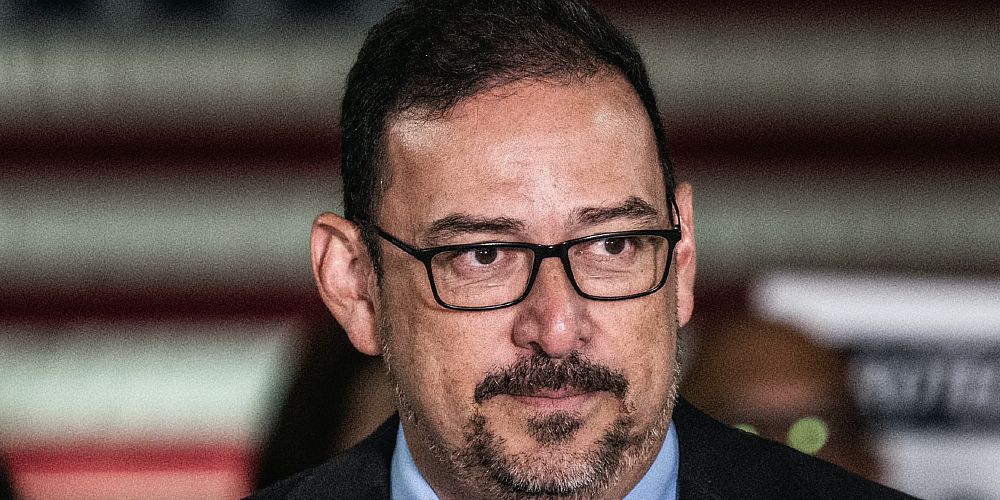A federal judge has temporarily blocked a rule put in place by Arizona’s Secretary of State that would have allowed him to certify the 2024 election even counties delayed certification due to claims of voter fraud.
Judge Michael T. Liburdi said in his ruling that Arizona’s Democrat Secretary of State Adrian Fontes risked disenfranchising voters by certifying election even if some votes weren’t certified by counties. This will allow challenges and even investigations to proceed if credible reports of voter fraud are made.
As George Behizy reported on 𝕏:
A federal judge in Arizona just ruled that the Democrat Secretary of State can NOT certify the results of the 2024 election if any counties withhold certification due to fraud.
“Plaintiffs allege that the plain terms of the Canvass Provision require the Secretary to nullify a county’s votes if the county board of supervisors fails to timely canvass… Considering the above, the Court finds that Plaintiffs have plausibly alleged a severe burden on their right to vote. The right to vote is fundamental.” – Judge Michael T. Liburdi
In 2022, the Cochise County Board of Supervisors voted to stall certification so they could investigate the fraud that took place. Democrats threatened them with lawsuits, forcing them to certify under duress. Wanting to stop that from happening again in 2024, Corrupt Secretary of State Adrian Fontes added a new provision to the Election Procedure Manual, mandating the certification of statewide results by tossing out the votes from counties that withheld certification.
The Rule: If the official canvass of any county has not been received by this deadline, the Secretary of State must proceed with the state canvass without including the votes of the missing county.
This ruling is a GAME CHANGER because it empowers counties to halt the certification process if fraud occurs in November. Bravo to Judge Liburdi.
Democrats have been employing a strategy of “running out the clock” on anything they believe can harm their chances of victory. This methodology has been employed in Arizona multiple times in recent elections, including 2020 and 2022.
By rightly declaring the new rule unconstitutional, Judge Liburdi takes the strategy off the table. If there are credible reports of election fraud that prevent any counties from being certified, then canvassing cannot begin until it’s resolved.
According to Jim Hoft at The Gateway Pundit:
Coffee the Christian way: Promised Grounds
The plaintiffs contended that the manual’s “Speech Provision” and “Canvass Provision” violated the First Amendment and Fourteenth Amendment rights of Arizona voters, specifically claiming it disenfranchised voters by allowing election officials to suppress speech and exclude votes from counties that fail to timely certify their results.
The Speech Provision in the manual explicitly prohibits actions like “raising one’s voice” or using “offensive language” at polling places, which plaintiffs argue could easily be weaponized to silence free speech under the guise of preventing voter intimidation.
Judge Liburdi acknowledged these concerns but noted the state’s intent to ensure orderly polling places. Plaintiffs contended that this rule was overly broad and amounted to unconstitutional censorship, which could have chilling effects on free speech not only near polling places but across the state.
On the Canvass Provision, the plaintiffs claimed that giving the Secretary of State the authority to proceed with the state canvass without counting votes from any county that failed to certify results in time was unprecedented and posed a significant risk of disenfranchising voters.
The plaintiffs cited the 2022 election in Cochise County, where election officials delayed certifying results, as an example of how this rule could be misused to throw out legally cast votes.
This is a small but important shift in the upcoming election. It allows for better scrutiny of election practices and prevents voters from being disenfranchised by the Secretary of State.

It’s becoming increasingly clear that fiat currencies across the globe, including the U.S. Dollar, are under attack. Paper money is losing its value, translating into insane inflation and less value in our life’s savings.
Genesis Gold Group believes physical precious metals are an amazing option for those seeking to move their wealth or retirement to higher ground. Whether Central Bank Digital Currencies replace current fiat currencies or not, precious metals are poised to retain or even increase in value. This is why central banks and mega-asset managers like BlackRock are moving much of their holdings to precious metals.
As a Christian company, Genesis Gold Group has maintained a perfect 5 out of 5 rating with the Better Business Bureau. Their faith-driven values allow them to help Americans protect their life’s savings without the gimmicks used by most precious metals companies. Reach out to them today to see how they can streamline the rollover or transfer of your current and previous retirement accounts.
Coffee the Christian way: Promised Grounds


